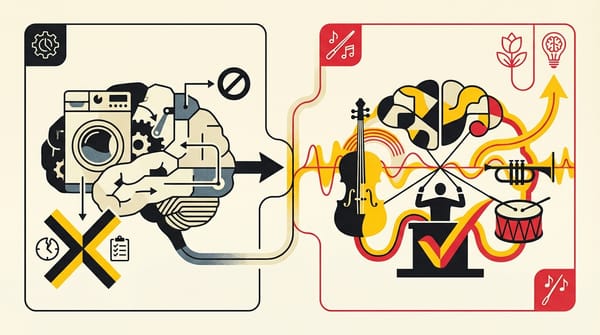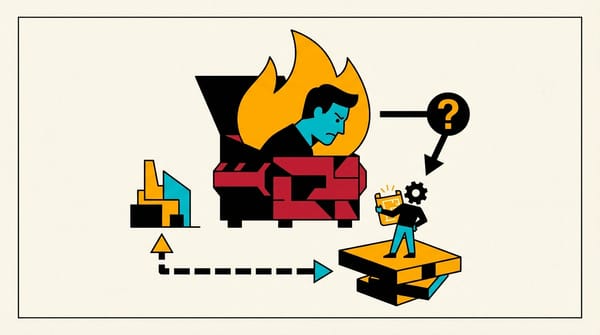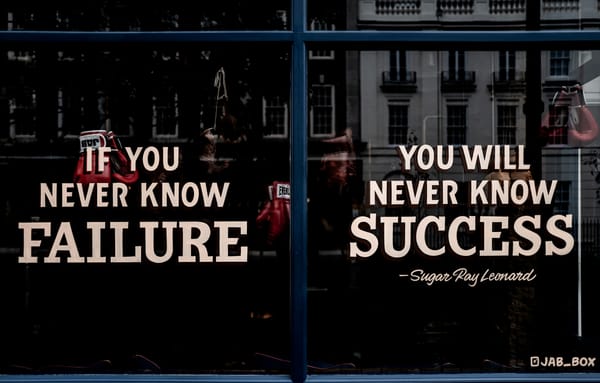Why Even 'Rock Stars' Fail: How Lack of Soft Skills Ruins Careers
Discover why mastering soft skills is crucial for career success. Learn how neglecting them can derail even the most talented professionals.

Spanish version

Podcast
Podcast version of this article generated by Google NotebookLM, it may contain errors.
Go
The job market is steadily changing. If five years ago professional skills were the key factor in hiring, today employers are increasingly paying attention to soft skills — personal and social abilities.
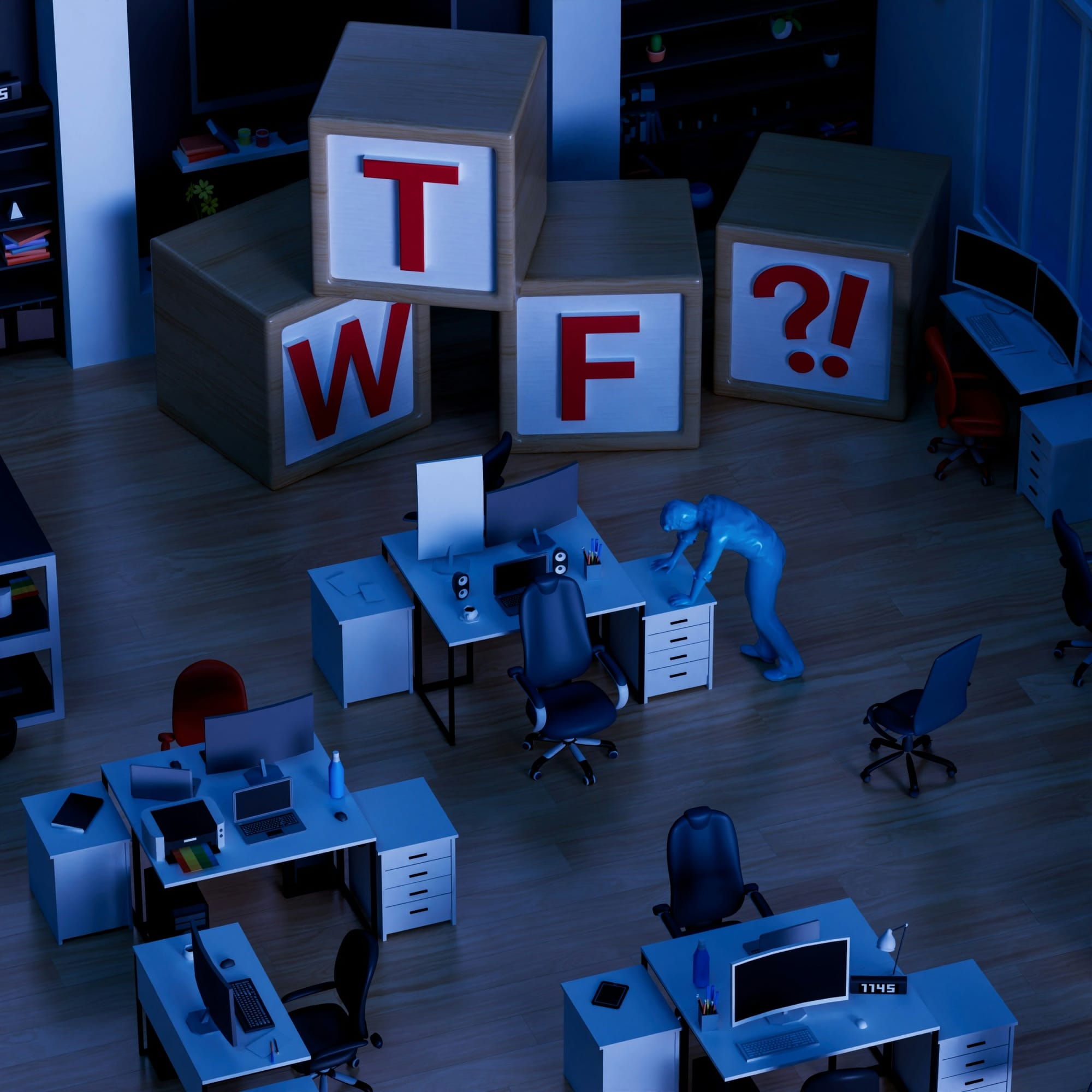
- Why is this happening?
- How can ignoring soft skills seriously harm your career?
- And why soft skills are not quite what you think they are.
Let's explore this in this article.
Hard skills: a foundation without a superstructure

Hard skills are the foundation of your professional competence.
- For programmers — the ability to write code and develop programs.
- For engineers — knowledge of mathematical analysis, strength of materials, and design skills.
- For designers — proficiency in graphic software, developed visual literacy, and a sense of composition.
But in a world where technologies become obsolete faster than you can master them, expertise alone is no longer sufficient.
Today, more than 100 people apply for one job opening. Therefore, being just a good specialist is no longer enough. Qualities that help to work effectively with other people and solve problems in constantly changing conditions — soft skills — are increasingly valued.
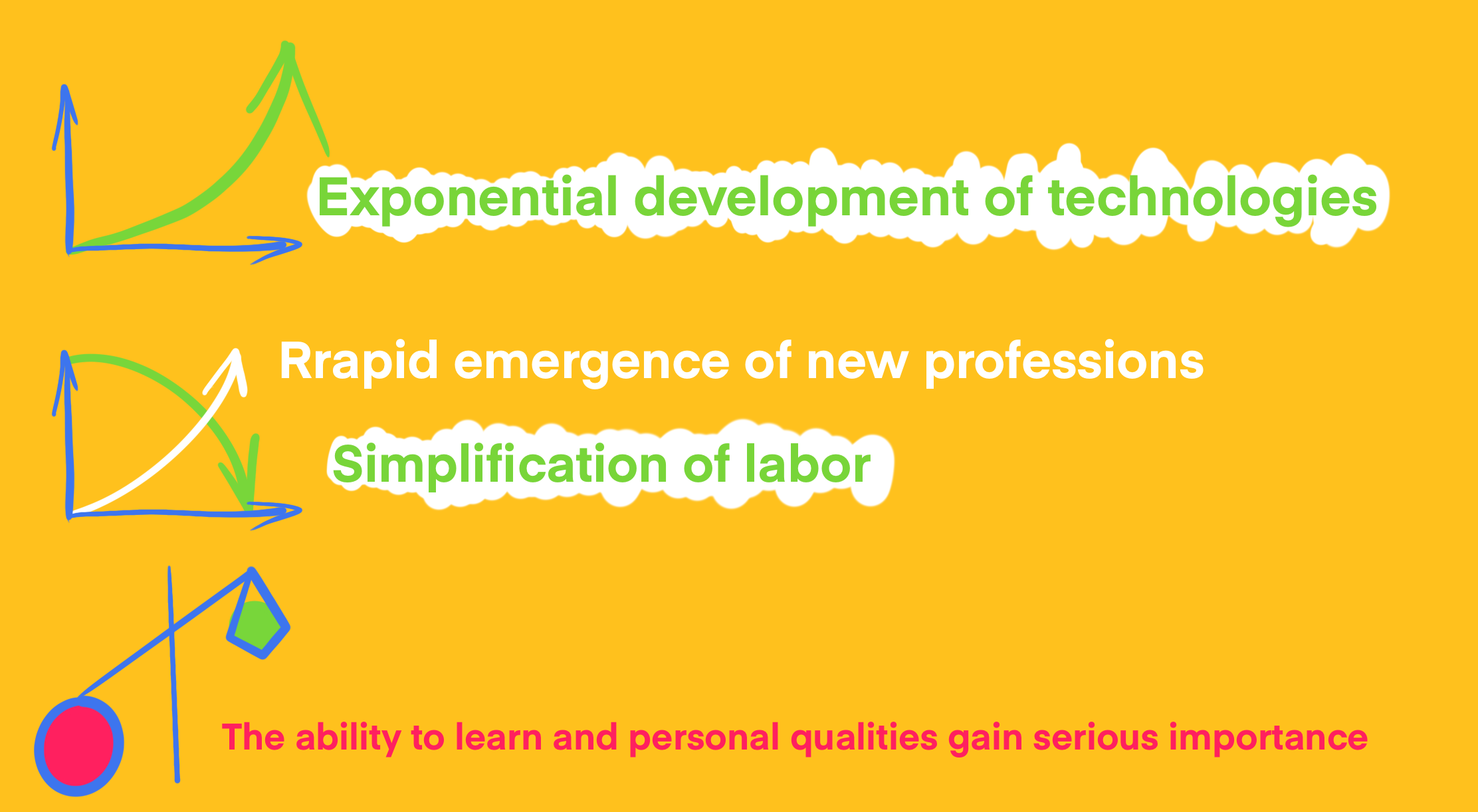
Soft skills: the hidden engine of success
Many consider soft skills an additional advantage, but in reality, they are the hidden engine that drives your career forward.
According to a LinkedIn study:
- 92% of recruiters believe that soft skills are no less important than technical skills, and in some cases — even more important;
- And 89% say that employees are often fired precisely due to the lack of these qualities.
This underscores the growing importance of these skills in today's job market.
Soft skills are additional abilities related to personal qualities and the ability to interact with others. Here's a standard list that you often see in job requirements:
- The ability to communicate effectively and work in a team.
- Punctuality and the ability to meet deadlines.
- Creative thinking and the ability to think outside the box.
- Information processing and decision-making skills.
- Flexibility and adaptability in changing conditions.
I'm sure you're thinking now that you know about these skills and even possess them. But they've become such an overused and unconscious item on resumes that almost everyone has come to believe they have these abilities.
But in reality, these skills are not what you're used to thinking about, but much deeper. Or are you confident in yourself and think this doesn't apply to you, and are ready to finish reading this article and risk your career development potential?
The Depth of Soft Skills: What You're Missing
- The ability to communicate effectively and work in a team is not just about expressing your thoughts, but also about listening to others, considering their opinions, and finding common ground even in difficult situations. It's about achieving goals together, not just personal achievements.It's not just about speaking, but being heard.
- Punctuality 2.0 is not just about arriving on time, but about organizing your time so as not to let down colleagues, miss deadlines, and understand the difference between "doing" and "getting done".From observing time to managing it.
- Creative thinking is not just about finding original solutions, but the ability to see familiar things from a new angle. It's the skill of finding unconventional approaches where others see a dead end. This mindset allows you to perceive problems, challenges, your own and others' mistakes not as failures or insurmountable obstacles, but as new opportunities.Seeing opportunities where others see barriers.
- The skill of processing information and making decisions is not just about gathering facts, but about the ability to separate the important from the secondary and make decisions that lead to results. It's the ability to quickly respond to new data and find the best solutions in changing conditions.From information noise to clarity of action.
- Flexibility and adaptability is the ability to not only quickly adjust to new circumstances but also to see opportunities in changes. It's the skill of maintaining calm and efficiency when conditions suddenly change.Changes are your springboard, not an obstacle.
Moreover, in a rapidly changing world, soft skills are becoming key for continuous professional and personal growth. They allow you to effectively apply and adapt skills in various situations, which is especially important in conditions where the learning process never ends.
A Real Example: How Zara Changed the Rules of the Game
For example, Zara, part of Inditex, created a unique fast fashion model thanks to its ability to quickly adapt to market changes. While most brands were releasing collections seasons in advance, Zara began producing clothing in response to current trends and consumer demand. This approach allowed them to reduce the process from development to sale to just a few weeks, which gave them the ability to quickly respond to changes in fashion and expand their target audience.
As a result, these skills were previously considered a nice bonus, but not key in employment. Today, soft skills are becoming a decisive factor in hiring and career advancement.
Zara has shown how soft skills at the corporate level can change an industry.
The Cost of Ignoring: What You Risk Losing
- Lost contracts and profits: If a manager can't effectively negotiate and persuade partners, it's a direct path to missed deals and funding. No matter how great the project is — without communication skills, results may simply not reach the finish line.Contracts go to those who know how to communicate.
- Toxic atmosphere: Even the most talented employees can become a source of problems if they don't know how to interact with others. One negative personality can destroy team spirit and reduce the productivity of everyone around.One 'difficult' employee can ruin a team.
- Failures due to chaos: When employees don't know how to plan their time and set priorities, no effort will save them from failures. As a result, everyone works at their limit, but they never reach the necessary goals.Lack of planning leads to project collapse.
- Ineffective leaders: Even excellent specialists can be useless in leadership positions if they haven't developed managerial soft skills. This leads to micromanagement, prolonged meetings, and stagnation in business development — the company has to either retrain such managers or look for replacements.Without soft skills, you're a captain without a crew.
These are problems that are easily solvable if attention is paid to developing key skills.

When the Best Become the Worst: Problems of Managers and Specialists
Imagine a situation: a leading specialist who is excellent in their field but doesn't know how to communicate with the team. Junior employees don't get the necessary support, projects are delayed due to lack of coordination. Even if a person is a talented professional, without well-developed soft skills, they can become a problem. Generally, there are 2 problems:
- Management problem: Often, specialists are hired or promoted to leadership positions without proper training in managerial skills. As a result, you get a person who is an excellent specialist but a mediocre manager. As I mentioned above, to prove their significance, such a manager starts to hold meaningless prolonged meetings, abuse micromanagement, or pay more attention to task completion than team management. This is such a common phenomenon that I'm sure you can remember how you've suffered from something like this yourself.
- Specialist problem: High-level professionals may not bring the expected results due to inability to collaborate and pass on experience to junior specialists. They are often subject to the fear of "losing influence". Such specialists live in a "lose-win" world, believing that by maintaining a monopoly on knowledge, they can "survive" — get promoted and protect themselves from being fired.However, in reality, it's the opposite: they become problematic employees that companies seek to get rid of at the first opportunity. The modern world is moving towards a "win-win" model, where the ability to share knowledge and work in a team is valued.
In general, today it's valued to be not just a good specialist, but also to be able to work in a team, adapt to changes, and communicate effectively. This is happening because managers are tired of "difficult" specialists, and specialists are tired of incompetent managers.
Yes, if you accept the era of continuous learning.
Soft Skills as Neural Connections in Your Career
Neurobiologists might not like my comparison, but for me in work, soft skills are like neural connections in the brain: they unite separate elements into a single effective system.

- Communication: improves interaction between employees.
- Creativity: promotes innovation and non-standard solutions.
- Synergy: teamwork leads to results that exceed the sum of individual contributions.
- Adaptability: the ability to quickly adjust to new situations and changes in the work environment.
- Critical thinking: the ability to analyze information, evaluate arguments, and make informed decisions.
- Emotional intelligence: the ability to recognize and manage your own emotions, as well as understand the emotions of others.
- Conflict resolution skills: the ability to effectively manage and resolve disagreements in a team.
- Negotiation...
- And so on

The Era of Continuous Learning: Why Soft Skills Are Your Main Tool
Employers are increasingly choosing people who not only have potential but also developed soft skills. It's not that technical knowledge is losing importance - it's just that it can be improved. But the ability to work effectively in a team, learn quickly, and adapt - that's what companies are not willing to miss out on. People with such skills can bring much more value, even if they're lacking in some areas. The LinkedIn study about 92% and 89% confirms this.
- Adaptability: It's important not just to know something, but to be able to quickly navigate new information and changing conditions. Old knowledge becomes obsolete, but the ability to learn and restructure remains the main advantage.
- Team spirit: People who can build connections in a team and create a comfortable atmosphere for work become key figures in any collective. They help not only to achieve results but also inspire everyone to move forward.
This is not just a trend - it's reality, and it creates enormous opportunities for those who are ready to develop. Employers are looking for those who not only know but also know how to learn.
I like to rephrase the quote from the movie "Margin Call" (2011):
"I'm here to guess what the music is going to do a week, a month, a year from now. That's it. Nothing more."
John Tuld, CEO of the investment Bank
To:
"I'm here not because I know everything, but because I can quickly learn, adapt, and work in a team. That's it. Nothing more."
for Cool specialists
Or:
"I'm here not because I know everything, but because I can quickly learn, adapt, and effectively lead a team. That's it. Nothing more."
for Awesome managers
Start Today: How to Become an Indispensable Specialist
- Choose one skill: Focus and start developing it right now.
- Practice daily: Small steps lead to big changes.
- Seek feedback: It's your best teacher.
Combining Mastery and Flexibility: Your Path to the Top
Today's world is changing so rapidly that personal qualities are becoming no less important than professional skills. Those who can adapt and interact effectively with people remain in demand and advance up the career ladder.
- Stay one step ahead: develop soft skills in parallel with technical skills to stand out among other specialists.
- Be flexible: the ability to change with circumstances is your superpower in a world where old methods quickly become obsolete.
- Maintain balance: learn to find a compromise between management requirements and your personal principles to maintain motivation and confidence.
If you want to be valued not only for your professionalism but also for your ability to build relationships, solve non-standard tasks, and remain flexible in any situation - start by improving your soft skills. This opens doors to new opportunities that you didn't even know existed.
In the modern world, success is achieved by those who can combine professionalism with flexibility and the ability to interact.

As always, I invite you to share your opinion in the comments
With love 😽 🤗 😘
K


